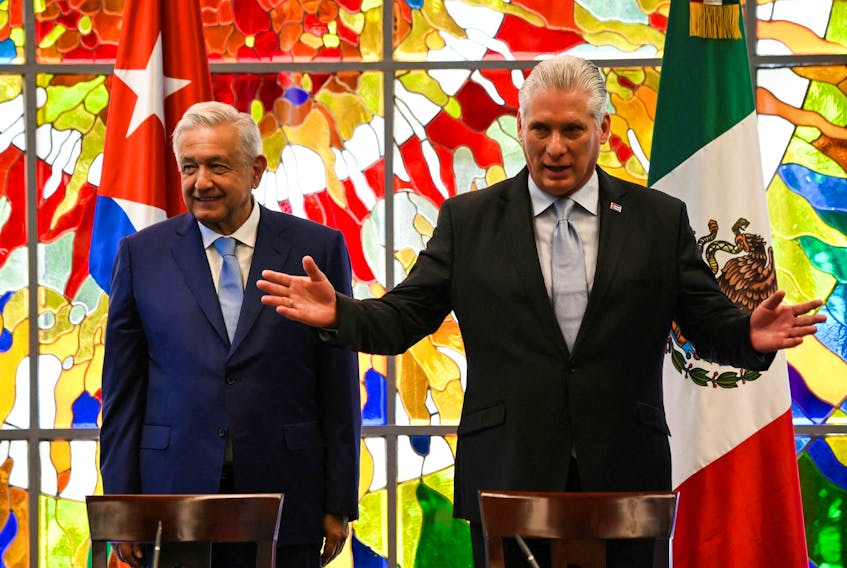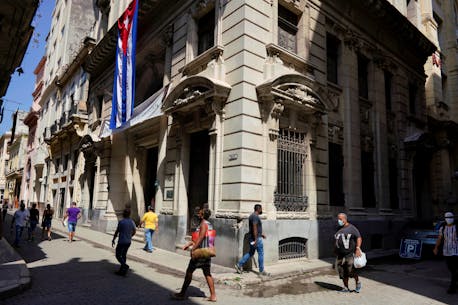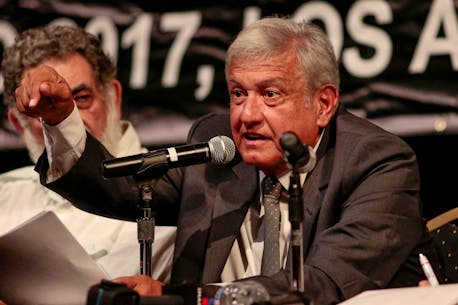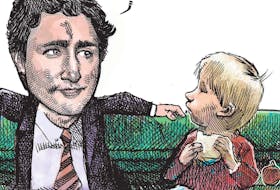Peter McKenna, a professor of political science at the University of Prince Edward Island in Charlottetown, provided the following opinion article.
When one examines the core drivers of Cuban foreign policy, you inevitably arrive at the following: protecting national independence and sovereignty, pragmatic realism and unrelenting counter-dependency. Add to that mix the key principle of Cuba’s vaunted humane internationalism or soft power.
All of these guiding nostrums were clearly on display in recent developments in Cuba-Mexico relations.
Historically fraternal
In the early part of February, Cuban President Miguel Díaz-Canel made a high-profile visit to the state of Campeche to meet with his Mexican counterpart – the fiery and loquacious populist Andrés Manual López Obrador (or AMLO). In fact, AMLO presented Díaz-Canel with Mexico’s highest distinction for a visiting head of government/state – the Medal of the Aztec Eagle.
It’s worth pointing out that Cuba-Mexico relations, historically speaking, have been decidedly close and fraternal – especially during successive PRI governments in Mexico. The extraordinarily positive nature of bilateral relations have also been a function of Mexico’s own revolutionary history, Fidel Castro’s exile to Mexico in the mid-1950s and fraught relations with the United States. Significantly, Mexico was one of only two countries (the other being Canada) not to break diplomatic relations with revolutionary Cuba in the early 1960s.
Cordial relations haven’t always been the case, of course. With the election of the conservative PAN government in 2000, and Mexico’s right-leaning president Vicente Fox, the Cuba-Mexico relationship arguably sank to its lowest level ever.

Serious betrayal
It all started in April of 2002, when Fox’s Mexico voted with the U.S. at the United Nations Human Rights Commission in Geneva to harshly criticize Cuba’s human rights record. In Havana, this vote against Cuba – the first time that the Mexicans had done so – was viewed as a serious betrayal (especially after Mexico City promised the Cubans that it would not side with the U.S.). “The only government that has pressured Mexico about its vote in Geneva on human rights in Cuba was the government of Havana,” a Mexican government spokesperson angrily explained.
Within a few days, Cuba’s Castro released the audio of a private telephone conversation that he had with President Fox in March where Fox asked the Cuban leader not to criticize the U.S. and to leave a UN development summit in Mexico early before U.S. President George W. Bush arrived. As you might well expect, this damaging audio release led to a major fracture in Cuba-Mexico relations.
Two years later, the Fox government once again signed on to a UN resolution in Geneva condemning Cuba’s record on human rights. Not unlike in 2002, Fidel Castro responded with an angry May Day speech that criticized Mexico for endorsing such an act of disloyalty and a plainly U.S.-orchestrated measure. He went on to add that Mexico’s influence and prestige on the world stage would now be “turned into ashes.”
Mexico then moved in an unprecedented fashion to withdraw its ambassador to Cuba. And to add insult to injury, Fox impulsively expelled the Cuban ambassador to Mexico – stopping just short of severing diplomatic relations with Cuba altogether.

Doctor diplomacy
Clearly, Vicente Fox was on a different ideological track than Mexico’s AMLO. He has sought to return Cuba-Mexico relations to a respectful place where old friends and neighbours can work co-operatively together.
Consistent with Cuba’s long-standing medical internationalism or “doctor diplomacy,” AMLO agreed to contract the services of an additional 100 Cuban medical specialists. Allocating those scarce health resources to underserved and remote communities in Mexico, this new compliment will be added to some 610 Cuban doctors already working in the country.
Moreover, Mexico’s AMLO has pledged to lead a campaign to have the U.S. blockade of Cuba removed.
As López Obrador insisted: “We are going to continue demanding that the blockade on Cuba be lifted; it is inhumane.”
According to AMLO, “I offer President Miguel Díaz-Canel that Mexico is going to lead a more active movement so that all the countries unite and defend the independence and sovereignty of Cuba.”
Given that Cuba is now experiencing some extraordinarily difficult economic challenges, AMLO’s promises were warmly welcomed by the Cuban side. Enhancing and deepening relations with Mexico demonstrate Cuba’s pragmatic side and a careful weighing of its vital foreign policy interests.
It’s worth pointing out that Cuba-Mexico relations, historically speaking, have been decidedly close and fraternal – especially during successive PRI governments in Mexico.
Classic strategy
Cuba obviously believes that the López Obrador government has some leverage – compliments of U.S. President Joe Biden’s obsession with neutralizing the sensitive Mexican border security and migration issues in the run-up to the 2024 presidential elections – to make Biden’s Cuba policy more friendly toward Havana.
All of this is classic Cuban strategy to construct counterweights to the U.S. by cementing political and economic relations with one of America’s closest trading partners. And it showcases Cuba’s commitment to pragmatism, internationalism, counter-dependency and independence in foreign policy-making.
It’s similar to Havana’s quest to counter the U.S. through its expanding relations with both China and Russia. Indeed, the message being sent by the Cuban government is clear: we are fortifying ourselves in power and America is not the only game in town.












